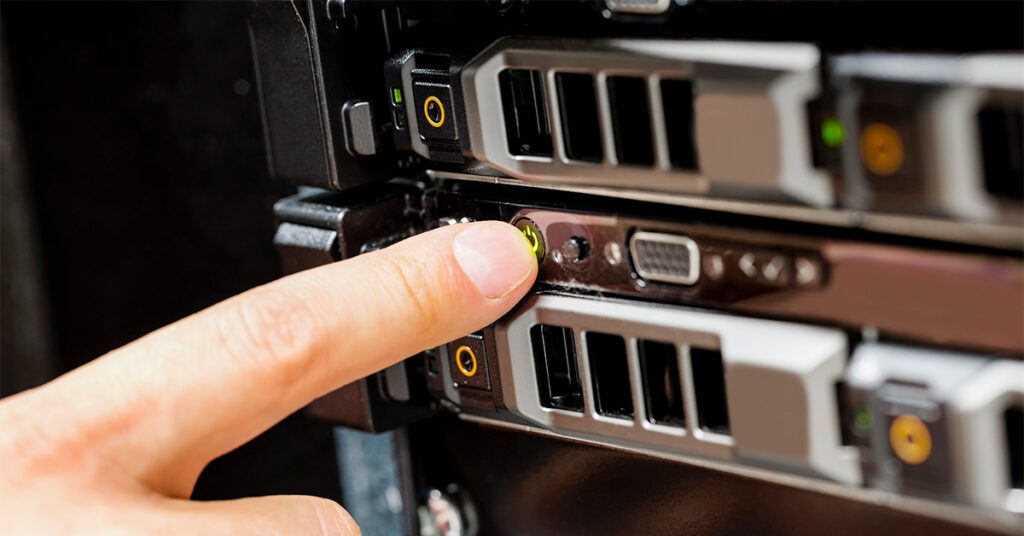Mechanical hard drives, also known as HDDs, are often the first choice for storage servers due to their cost effectiveness and large storage capacity. One of the main advantages of mechanical hard drives is their affordability. Compared to SSDs, HDDs offer significantly more storage space per penny, making them an economical option for businesses that need large amounts of storage space without blowing the budget.
Large mechanical hard drives are typically 3.5″ in size, requiring the server chassis to support these drives. It is important to ensure that your server chassis can handle the physical size and number of disks you plan to use.
In terms of connectivity, the SATA interface is often fast enough for storage servers. With a maximum transfer rate of up to 6 Gbps, the SATA interface offers sufficient bandwidth to handle most storage needs, especially for applications that do not require extremely high performance.
Performance requirements for a storage server
When it comes to the performance needs of a storage server, it is important to distinguish between different types of load. A storage server that is primarily used to store and provide files usually does not have the same performance requirements as a server that runs databases or high transaction volume applications. For these uses, mechanical hard drives are more than sufficient, especially when it comes to handling large amounts of data with relatively low reading and writing activity at the same time.
HDD speed and performance
Modern mechanical hard drives, such as Seagate Exos, offer impressive read and write speeds. These enterprise-class drives can handle significant workloads and are designed for continuous operation in data center and server environments. With a rotation speed of up to 7200 RPM and advanced cache algorithms, they can deliver a stable and reliable performance that is sufficient for most storage needs.
Enterprise hard drives such as Seagate Exos for storage servers
Seagate Exos is a series of enterprise hard drives that are specially designed to meet the high demands of data centers and storage servers. These drives offer high reliability with an MTBF (Mean Time Between Failures) of up to 2.5 million hours, guaranteeing long life and minimal maintenance. In addition, Seagate Exos drives have advanced features such as PowerBalance™ for optimized energy consumption and Enhanced Caching for improved performance.
Optimal areas of use
Mechanical hard drives are ideal for a variety of uses, including the storage of large files and archives, backup solutions and long-term data storage. The large capacities offered by HDDs make them ideal for managing large data collections, such as multimedia files, documents and other types of data that do not require fast access. Backup and archive solutions also benefit from the financial benefits of mechanical hard drives, as they offer a cost-effective method of storing large amounts of data over the long term.
Cost savings
One of the most prominent advantages of mechanical hard drives is their low cost per terabyte compared to SSDs. This makes them an attractive option for businesses that need to maximize their storage capacity without exceeding their budget. By using mechanical hard drives, companies can lower their total cost of ownership and invest the savings in other critical areas.
Implementations
Many companies have successfully implemented mechanical hard drives in their storage servers and achieved reliable and cost-effective storage. For example, several customers have reported positive results with Seagate Exos, where they appreciate the high reliability and large storage capacity. These customer stories and testimonials highlight the practical benefits and financial viability of using mechanical hard drives in storage solutions.
Conclusion: When are mechanical hard drives the best choice?
In conclusion, mechanical hard drives are an excellent choice for storage servers, especially when cost-effectiveness and large storage capacities are priorities. For applications such as large file storage, backup solutions and archives where quick access is not critical, mechanical hard drives such as Seagate Exos offer a reliable and affordable solution. We recommend mechanical hard drives for companies looking for budget-friendly storage options for servers without compromising reliability and capacity.
